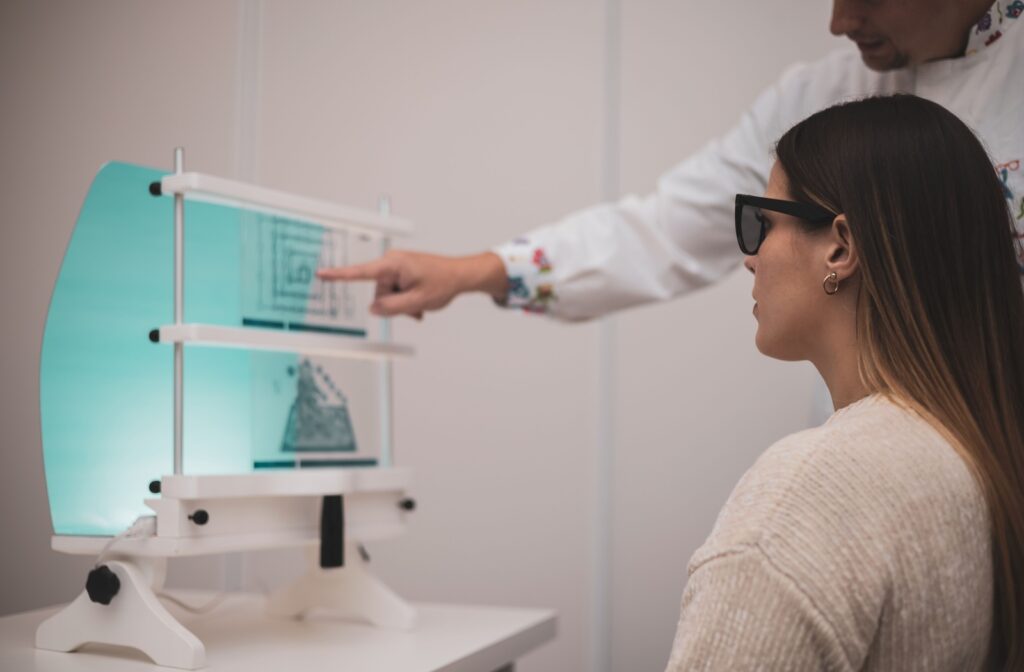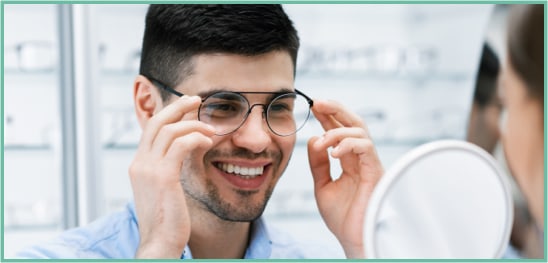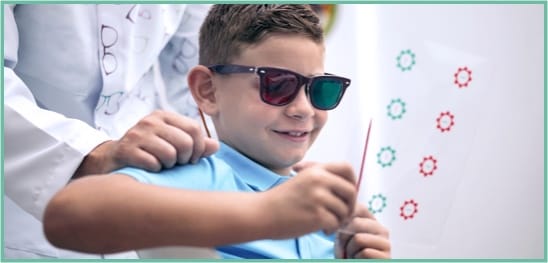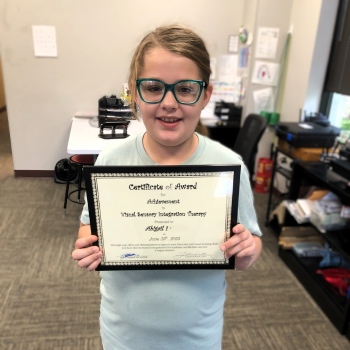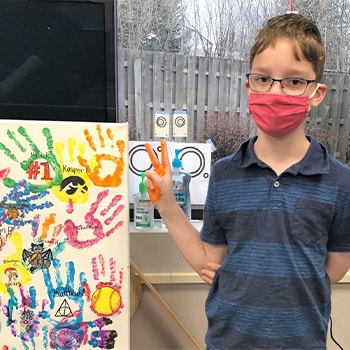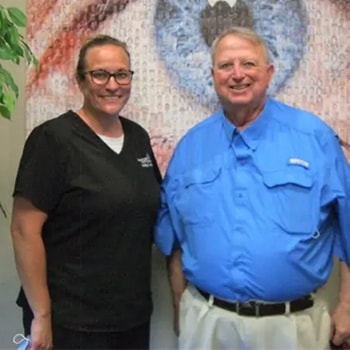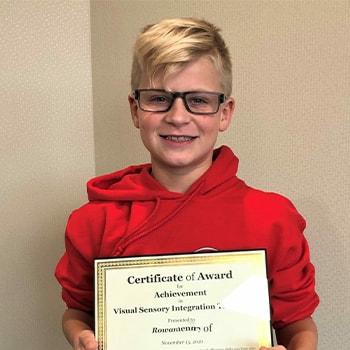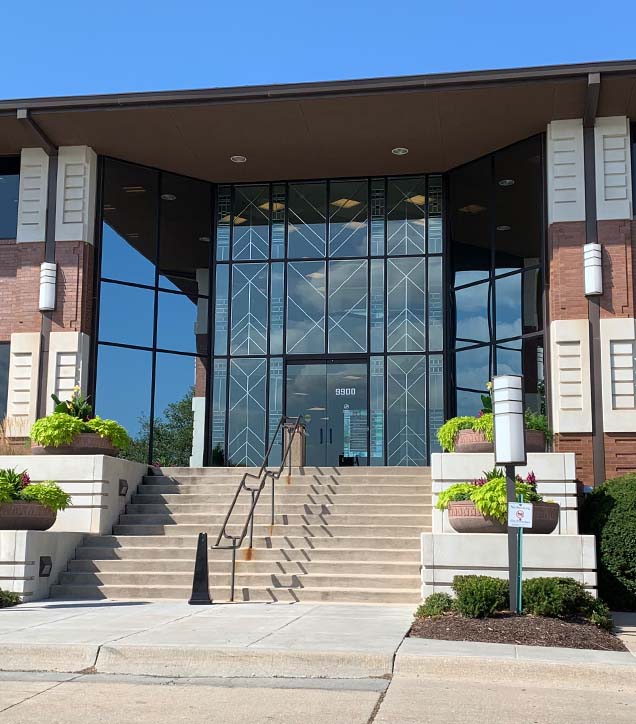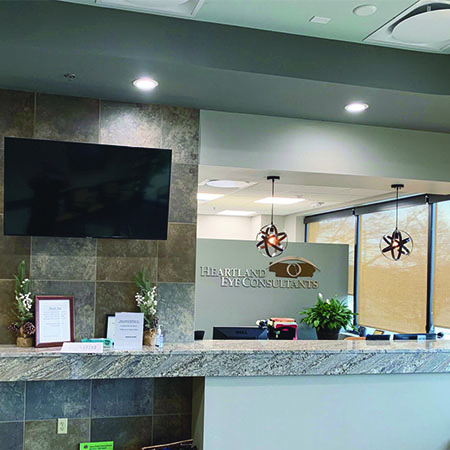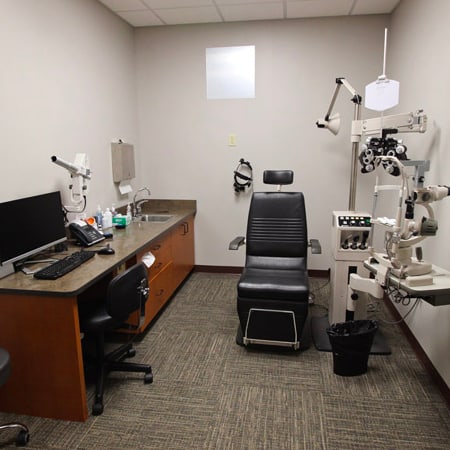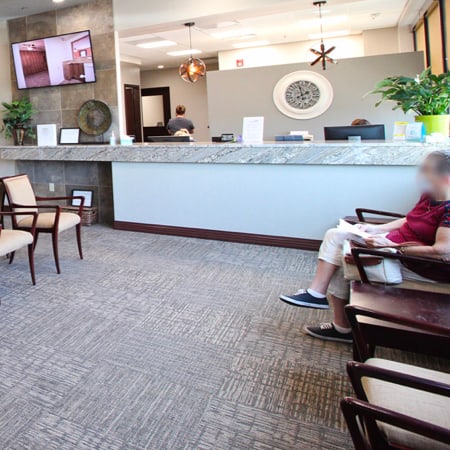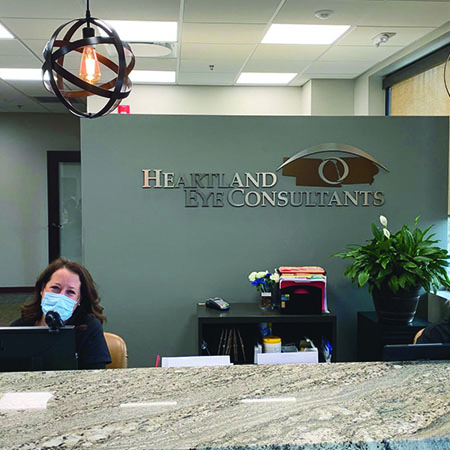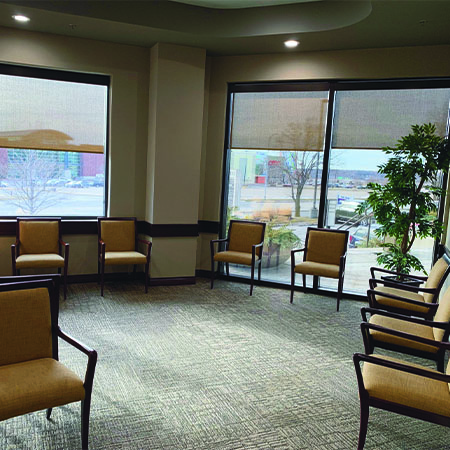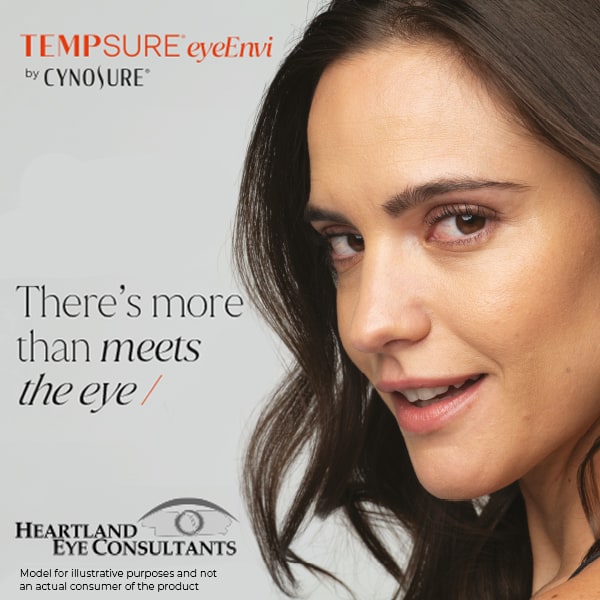Are you or your child struggling with vision problems that glasses or contact lenses can’t seem to help? Vision therapy might be the answer. It’s a non-surgical treatment designed to correct specific vision issues, such as strabismus and amblyopia, often helping improve vision.
Vision therapy typically involves personalized exercises and activities that aim to improve eye coordination, focusing abilities, and overall visual processing skills.
What Is Vision Therapy?
At its core, vision therapy is a personalized program of visual activities designed to correct vision problems and improve visual skills. Think of it as physical therapy for your eyes and brain. Conducted under the supervision of an optometrist, vision therapy employs various exercises and specialized equipment to enhance the efficiency and performance of your visual system. Such exercises can include:
- Prism lenses: These are specialized lenses crafted to alter the path of light as it enters the eyes, thereby aiding in the correction of alignment and focus issues. By adjusting how light is directed onto the retina, prism lenses can help individuals achieve better visual clarity and depth perception.
- Computer programs: This refers to interactive software specifically designed to target and improve certain visual skills. Through engaging activities and exercises, these programs help users develop stronger visual processing capabilities, including better eye tracking, depth perception, focusing, and visual memory skills.
- Therapeutic lenses: Similar to prism lenses, therapeutic lenses modify the way light enters the eye, but they focus on correcting focusing and alignment problems. These lenses can be tailored to address a range of visual impairments, providing a non-invasive solution for enhancing visual acuity and comfort.
What Can Vision Therapy Treat?
Vision therapy is versatile and can treat various vision issues, particularly those that can’t be corrected with glasses or contact lenses alone. Here are some of the most common conditions it addresses:
Strabismus (Crossed Eyes)
Strabismus is a condition where the eyes do not align properly, causing one eye to turn in, out, up, or down while the other eye remains focused. Vision therapy aims to improve eye coordination and alignment through specialized exercises and techniques.
Amblyopia (Lazy Eye)
Amblyopia occurs when one eye is weaker than the other. Vision therapy works to strengthen the weaker eye and improve coordination between both eyes, often using techniques like patching or specific exercises.
Convergence Insufficiency
This condition affects the eyes’ ability to work together when looking at close objects, often leading to double vision or eye strain. Vision therapy helps improve the eyes’ ability to converge or work together, reducing symptoms.
Eye Movement Disorders
Conditions like saccadic dysfunction (difficulty with quick eye movements) and pursuit dysfunction (difficulty with smooth tracking movements) can make reading and other tasks challenging. Vision therapy trains the eyes to move more efficiently and accurately.
Visual Processing Disorders
These disorders affect how the brain processes visual information, often impacting learning and reading abilities. Vision therapy can help improve visual processing skills, making interpreting and responding to visual stimuli easier.
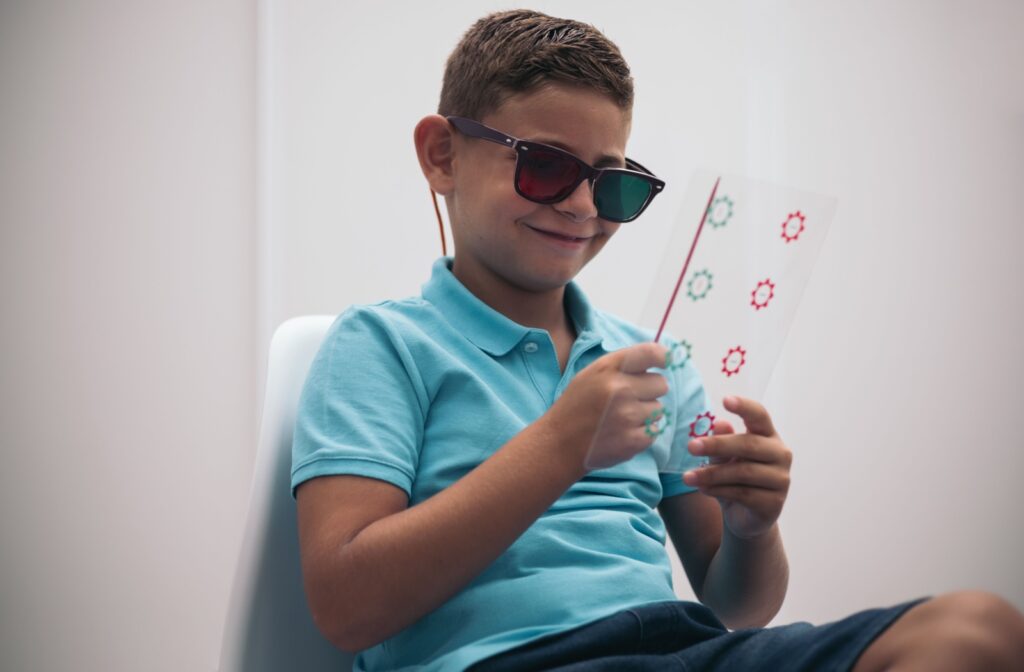
How Does Vision Therapy Work?
Vision therapy typically involves weekly or bi-weekly sessions at an optometrist’s office, with exercises and activities to practice at home. The duration can vary depending on the severity of the condition and the individual’s progress, generally ranging from a few weeks to several months.
Vision therapy will typically include:
- Comprehensive eye exam: Initial evaluation to determine the specific vision issues requiring treatment.
- Customized treatment plan: Development of a personalized therapy plan tailored to the individual’s needs.
- In-office sessions: Regular appointments with an optometrist to perform specialized exercises and track progress.
- Home exercises: Routine activities to practice between sessions, reinforcing the skills learned in the clinic.
- Progress monitoring: Continuous assessment to adjust the therapy plan as needed.
Benefits of Vision Therapy
Vision therapy can offer multiple benefits, including:
- Improved academic performance: Enhanced visual skills can lead to better reading comprehension, concentration, and overall academic success.
- Increased comfort: Reduction in eye strain, headaches, and discomfort associated with vision problems.
- Enhanced confidence: Success in vision therapy can boost self-esteem, particularly in children struggling with visual issues.
- Better quality of life: Overall improvement in daily activities, from reading and writing to sports and other hobbies.
- Improved sports performance: Maximizing reaction time, depth perception, and eye tracking can provide an edge athletes need to reach their full potential.
- Recovery from concussion or head injury: Many who suffer a concussion experience visual symptoms. Vision therapy provides rehabilitation to the damaged pathways of the brain with significantly reduced symptoms and improves quality of life.
Thinking About Pursuing Vision Therapy?
Vision therapy offers a promising solution for many who face persistent vision problems. It’s a tailored, non-invasive approach that can address the root causes of vision issues. By understanding and addressing the specific needs of your visual system, vision therapy paves the way for clearer, more comfortable vision, enhancing your quality of life and helping you achieve your full potential.
If you or your child are experiencing vision difficulties, consider consulting with an optometrist to determine whether vision therapy is the right path for you.
Ready to take the first step? Contact Heartland Eye Consultants today to learn how this treatment can benefit you.


